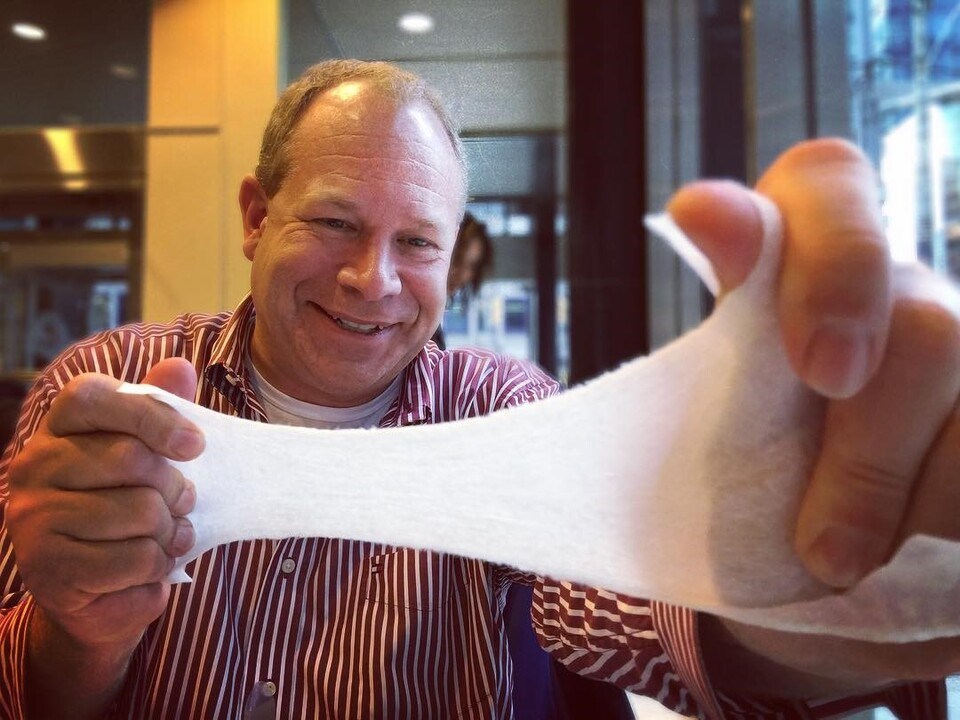Somewhere between the nearest toilet and a municipal wastewater plant, thousands of sanitary wipes are sloshing through pipes, twisting into reams of fabric and gumming up sewer pumps at the cost of millions of dollars a year.
“We get an alarm. We have to send our work crews out there,” said Dana Zheng, program manager of source control at Metro Vancouver’s liquid waste services department.
“We call it ragging — thousands of wipes and other unflushable materials that have just sort of bound themselves together around the pump. It can be pretty gross.”
Arriving on the scene, operators are forced to carefully pull out the bound wipes with their hands, being careful not to stab themselves on needles or splash themselves with raw sewage.
The health and safety problem grows bigger every minute a pump is out of service. Pumps are there to send sewage over hills. Zheng says an out-of-service pump risks a sewage overflow into public spaces like a beach, river or street.
Flushing wipes down the toilet costs cities across Canada an estimated $250 million a year. It’s a problem Zheng says never existed 25 years ago, and one she says started when paper companies began producing wipes labelled “flushable.”
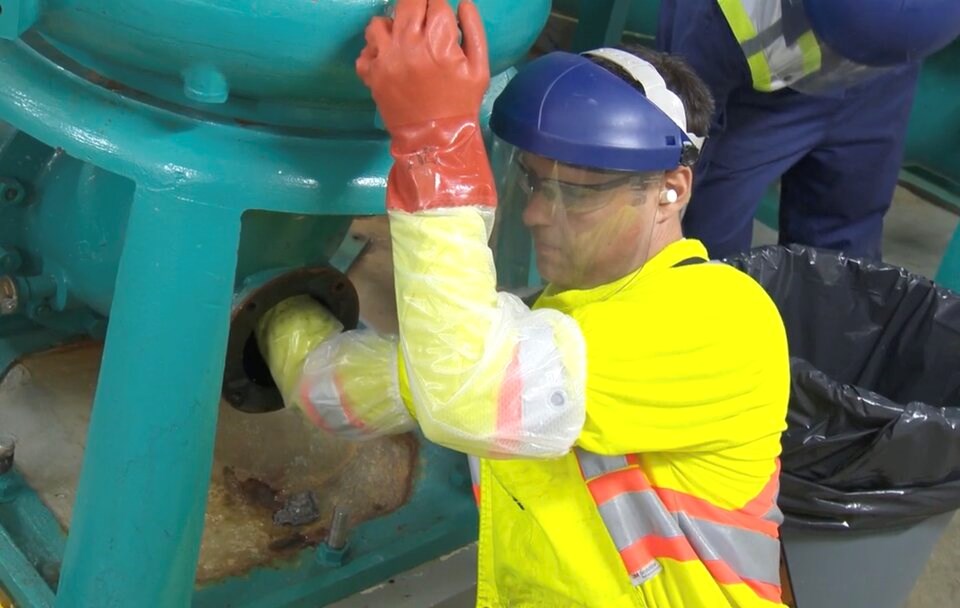
At the time, Barry Orr was working in municipal waste for the City of London, Ont., when he started seeing what were essentially single-use baby wipes cut into smaller squares.
As the problem grew, so did Orr’s frustration that no senior levels of government were listening. So he started running experiments at a make-shift lab at Toronto Metropolitan University, known as Ryerson University at the time.
In 2019, he co-authored a commissioned by the Municipal Enforcement Use Group of Canada (MESUG) looking into hundreds of different products labelled as “flushable.”
Most consumer products he and his colleagues tested did “not sufficiently disintegrate” under standards created by the International Water Services Flushability Group (IWSFG), an organization formed in 2017 by wastewater associations from around the world.
Of the 21 products labelled “flushable,” only two were found to partially disintegrate when passed through the model toilet and sewer, according to the report.
“We found out that a lot of these products are made of plastics. They’re strong,” said Orr.
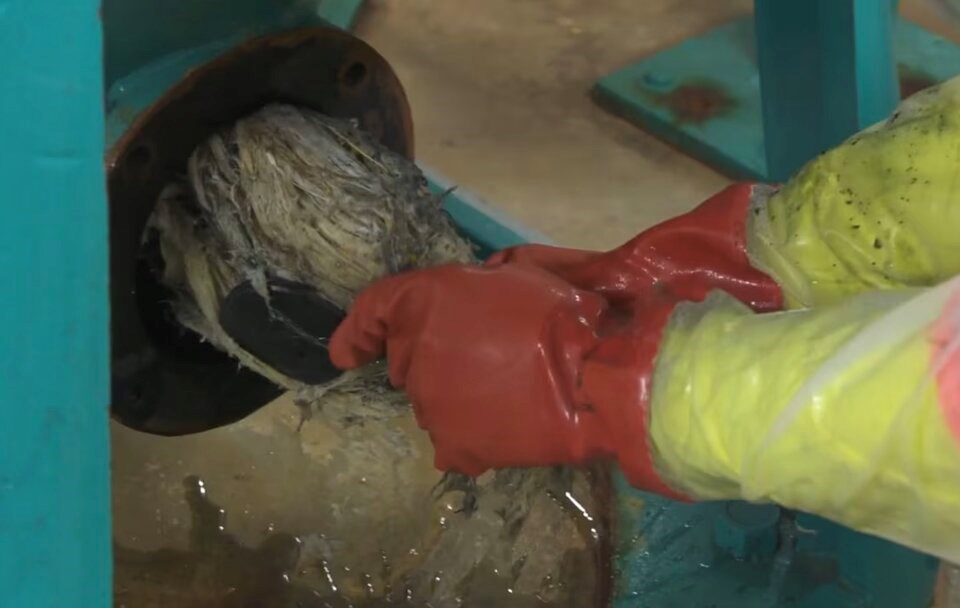
Duelling standards lead to watchdog impasse
Soon after, Friends of the Earth Canada cited Orr's research in a complaint to Canada’s Competition Bureau that alleged the makers of more than 20 disposable wipes were falsely advertising the products as safe to flush down the toilet.
Three years layer, the watchdog tossed out the case, stating there were competing guidelines on what should be deemed “flushable.”
There are essentially two standards: guidelines set by the IWSFG, which wastewater utilities widely consider representative of real world conditions; and standards created exclusively by industry under the Association of the Nonwoven Fabrics Industry and the European Disposable and Nonwovens Association.
Zheng said the industry definition of flushability is hotly contested because “their testing process isn't realistic” and wipes keep clogging up municipal wastewater pump stations.
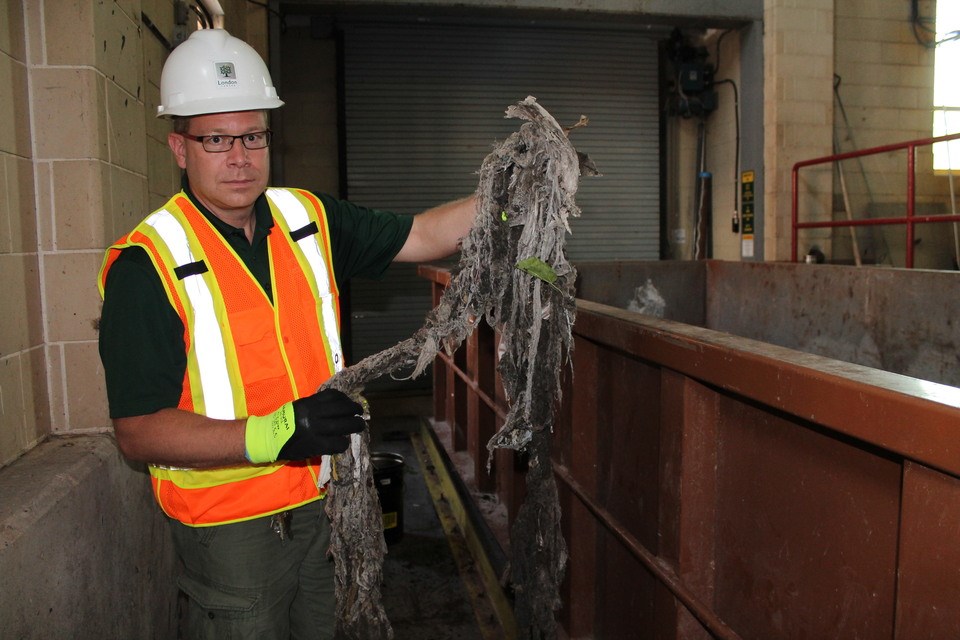
Outside of his lab, Orr continued to work on international standards, and has acted as an expert witness in class-action lawsuits in the United States. One 2021 class-action case brought by a water utility in Charleston, S.C., against wipe manufacturer Kimberly-Clarke ended in a settlement with the company admitting no wrongdoing.
And when another case ended in a settlement in March 2024 — this time against big retailers like Costco, CVS, Target and Walmart — the utility’s CEO described wipes as the wastewater industry’s “public enemy number one.”
“It’s sort of turned into a passion,” said Orr. “I’ve worked in wastewater for 30 years. I saw the damage that was being done. I saw how hard it was to combat the manufacturers.”
“Wastewater is to protect the system citizens and you and I pay for. And manufacturers are profiting from products that damage that system.”
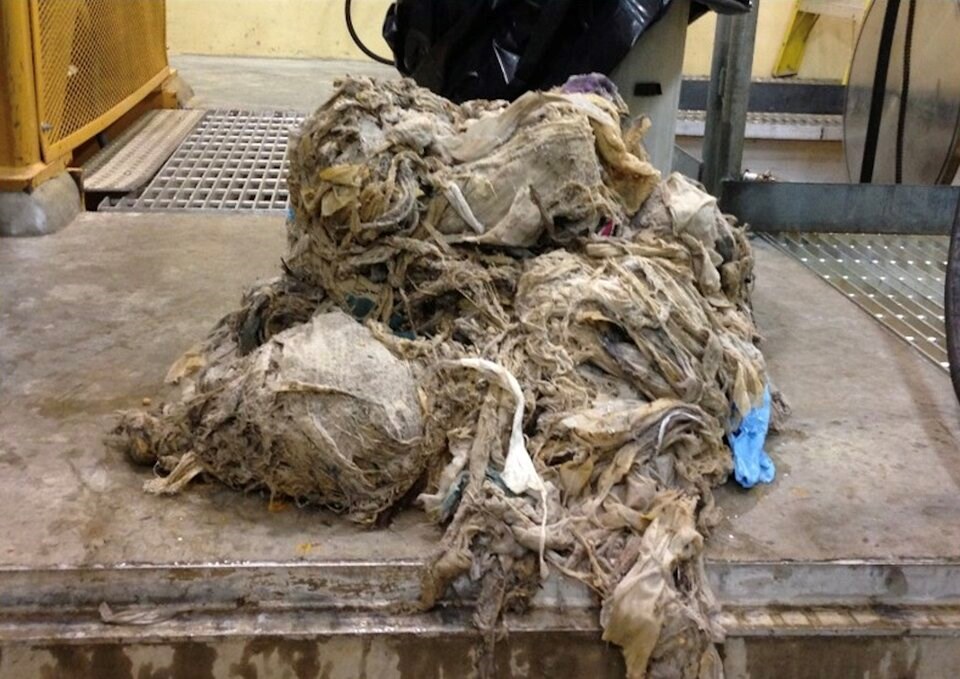
'Swirling bowl of magic'
Back in Canada, Orr continues to advocate for flushability standards as the spokesperson for MESUG — the association of wastewater bylaw experts. He said the group gained an audience with then Minister of Innovation, Science and Industry François-Philippe Champagne. But a lack of an agreed-upon definition for what’s flushable remained a stumbling block.
Meanwhile, disposable technology has changed drastically in recent years, with more and more products labelled as flushable on the market — from diaper liners and dog poop bags, to paper packaging for food.
Asked where the disposable industry is headed and why he thinks companies are looking to label more products “flushable,” Orr pointed to the toilet as “a swirling bowl of magic.”
“People are fascinated with the toilet,” he said. “It disappears magically and they have no idea where it goes. But it goes somewhere, and we have to deal with it.”
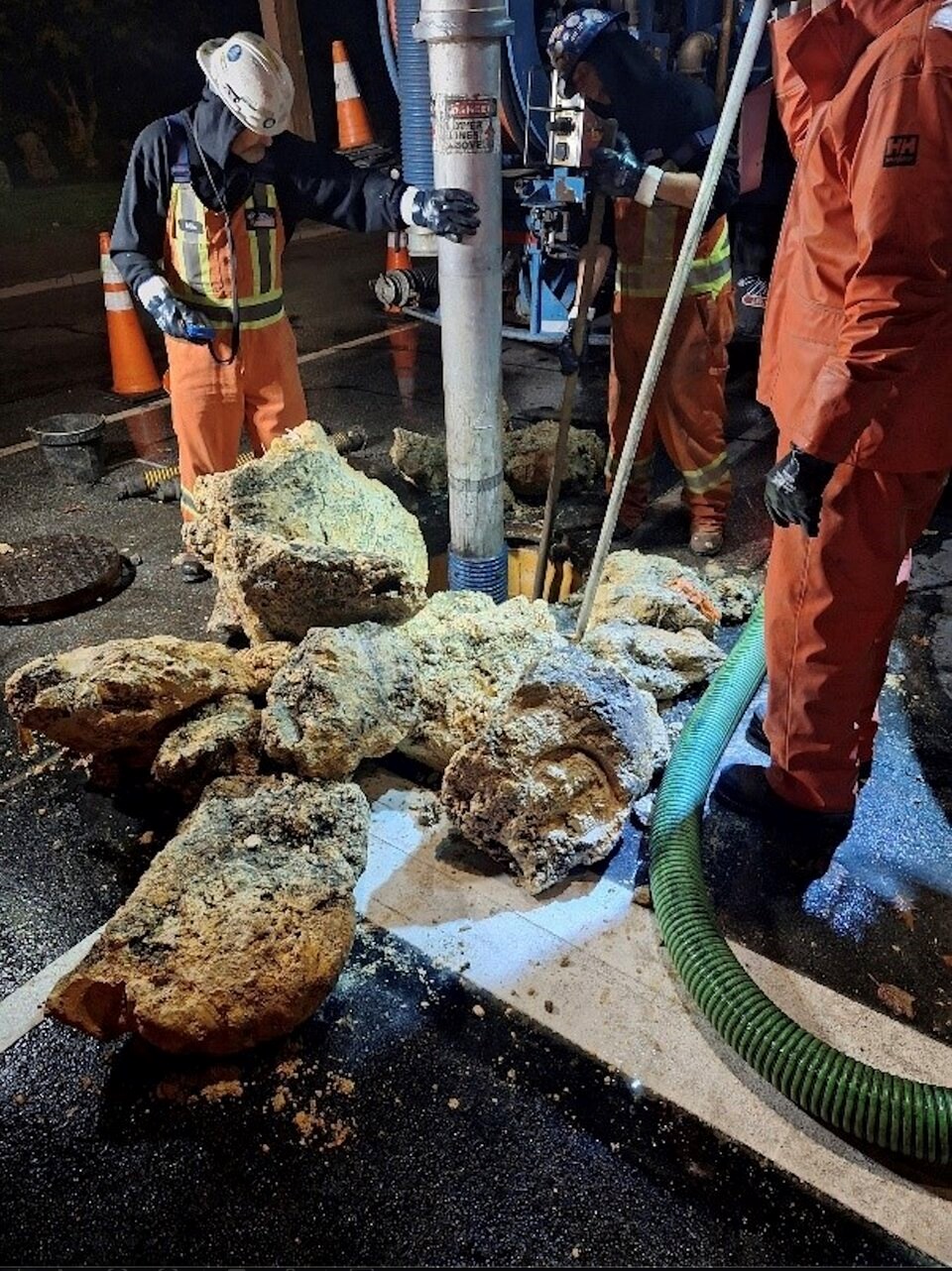
In April, Orr retired from his city job in Ontario and moved to Vancouver Island where he works for the Capital Regional District as an environmental science officer. His new job keeps him busy but Orr still runs the wastewater lab in Toronto and he says the fight against wipes “won’t go away.”
“We have hit every single sector of the federal government and got nowhere. We’ve hit provinces and we can’t get anywhere,” he said. “You can’t get any level of government to put a standard in place.”
That is, until this week.
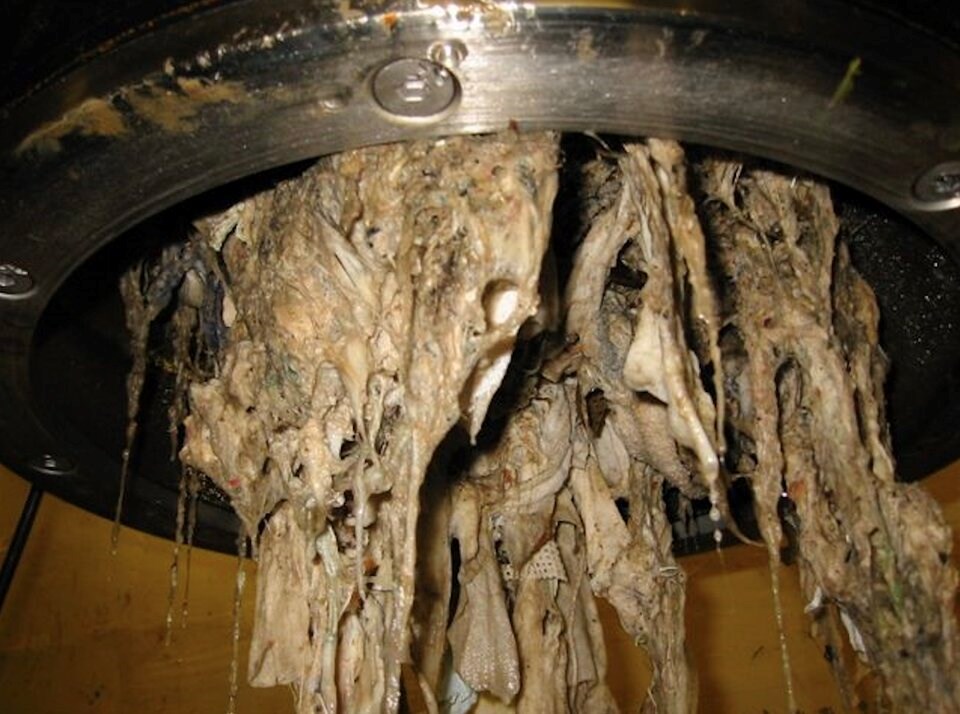
Metro Vancouver offers 'ray of hope'
On Friday, Metro Vancouver’s board of directors passed a motion to submit a resolution to the Federation of Canadian Municipalities that would call on the federal government to finally come up with a definition for what is truly “flushable.”
“It's a new ray of hope,” said Orr.
Zheng, who wrote the motion, said she has been coordinating with colleagues across Canada, and everyone is ready to cut costs and reduce damage to their wastewater systems.
Whether the call to define what’s “flushable” will finally be taken up by the federal government is not clear. Both Zheng and Orr said a definition through the CSA Group — formally known as the Canadian Standards Association — would send a clear signal that misrepresenting wipes as “flushable” and environmentally sound is no longer acceptable.
What is clear, said Zheng, is that the problem is bigger than any one city and requires the legislative or regulatory powers of the federal government.
“We're just up against the toilet paper manufacturing industry,” she said. “We are out-budgeted and out-sized.”
